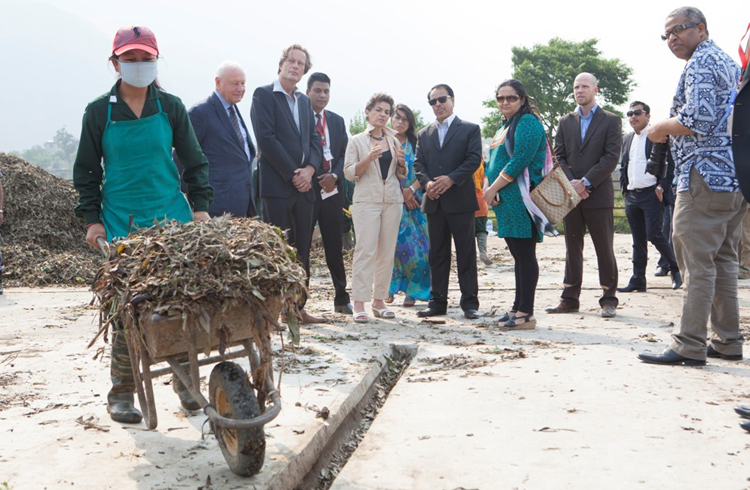The Biocomp project collects organic waste from local vegetable markets in Nepal’s capital city, Kathmandu, and converts it into compost. Developed in partnership with myclimate, Biocomp creates job opportunities in Kathmandu whilst simultaneously and effectively reducing greenhouse gas emissions that would otherwise be produced by rotting matter in open rubbish tips. As a flagship initiative, the project received the UNFCCC Momentum for Change Award 2012.
“Biocomp is living proof that climate protection can trigger a range of other positive developments, such as fighting against poverty, creating jobs and developing resilient and productive agricultural systems”, says Ms. Figueres. This project aims to reduce around 4,000 tonnes of CO₂ every year. By 2015, 50 tonnes of organic waste will be collected and processed on a daily basis. “If the dedication of people in Nepal, flagship projects such as Biocomp and a number of other local projects around the world represent a litmus test of our efforts, then we are well on the way to making this century more prosperous, healthier and safer”, says Christina Figueres.
Christiana Figueres visited Nepal on the occasion of the 8th annual <link www.iied.org/cba8-8th-conference-community-based-adaptation-climate-change - external-link>“Community-Based Adaptation” conference </link>in Kathmandu. Conference attendees debated on questions such as how international financing can more effectively reach communities in need, and how the private sector can better support these communities in adapting to climate change.
During her visit, Christiana Figueres also experienced first-hand the efforts of government, NGOs, youth activists and entrepreneurs in tackling climate change. “Some are predicting that Nepal is at risk of losing one per cent of its GDP due to future floods and landslides. And that will progress still further if the global community cannot find ways to create a permanent downward curve in emissions”, says Ms Figueres.
